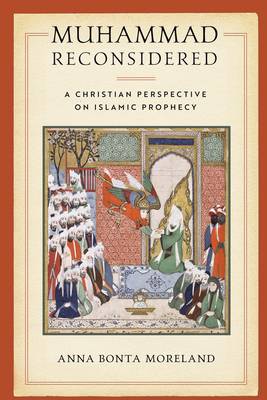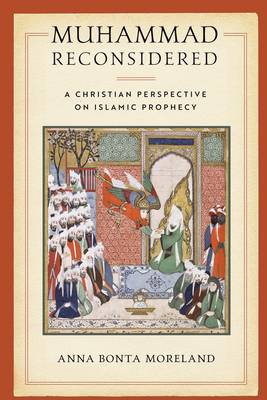
- Afhalen na 1 uur in een winkel met voorraad
- Gratis thuislevering in België vanaf € 30
- Ruim aanbod met 7 miljoen producten
- Afhalen na 1 uur in een winkel met voorraad
- Gratis thuislevering in België vanaf € 30
- Ruim aanbod met 7 miljoen producten
Muhammad Reconsidered
A Christian Perspective on Islamic Prophecy
Anna Bonta MorelandOmschrijving
Scholarly attempts to understand Islam in the West over the past several years have failed to take Islamic theology seriously. This book engages Islam from deep within the Christian tradition by addressing the question of the prophethood of Muhammad. Anna Bonta Moreland calls for a retrieval of Thomistic thought on prophecy to view Muhammad within a Christian theology of revelation, without either appropriating the prophet as an unwitting Christian or reducing both Christianity and Islam to a common denominator. This historical recovery leads to a more sophisticated understanding of Islam, one that honors the integrity of the Catholic tradition and, through that integrity, argues for the possibility in principle of Muhammad as a religious prophet.
Moreland sets the stage for this inquiry through an intertextual reading of the key Vatican II documents on Islam and on Christian revelation. She then uses Aquinas's treatment of prophecy to address the case of whether Muhammad is a prophet in Christian terms. The book examines the work of several Christian theologians, including W. Montgomery Watt, Hans Küng, Kenneth Cragg, David Kerr, and Jacques Jomier, O.P., and then draws upon the practice of analogical reasoning in the theology of religious pluralism to show that a term in one religion--in this case "prophecy"--can have purchase in another religious tradition. Muhammad Reconsidered not only is a constructive contribution to Catholic theology but also has enormous potential to help scholars reframe and comprehend Christian-Muslim relations.
Specificaties
Betrokkenen
- Auteur(s):
- Uitgeverij:
Inhoud
- Aantal bladzijden:
- 196
- Taal:
- Engels
Eigenschappen
- Productcode (EAN):
- 9780268107260
- Verschijningsdatum:
- 30/03/2022
- Uitvoering:
- Paperback
- Formaat:
- Trade paperback (VS)
- Afmetingen:
- 152 mm x 229 mm

Alleen bij Standaard Boekhandel
Beoordelingen
We publiceren alleen reviews die voldoen aan de voorwaarden voor reviews. Bekijk onze voorwaarden voor reviews.











